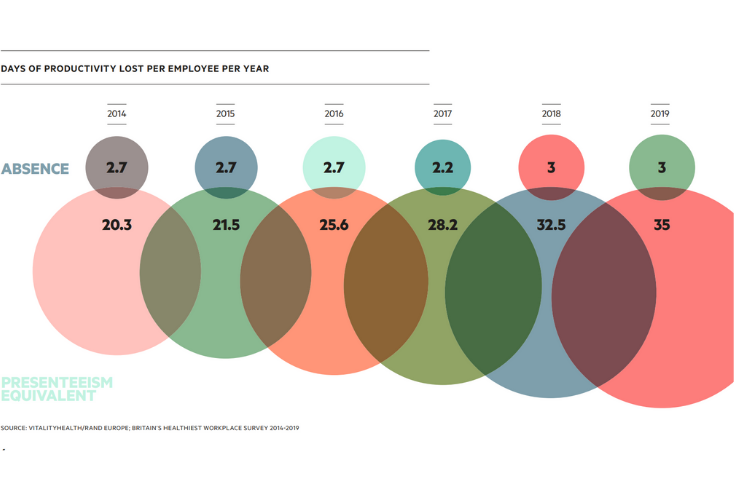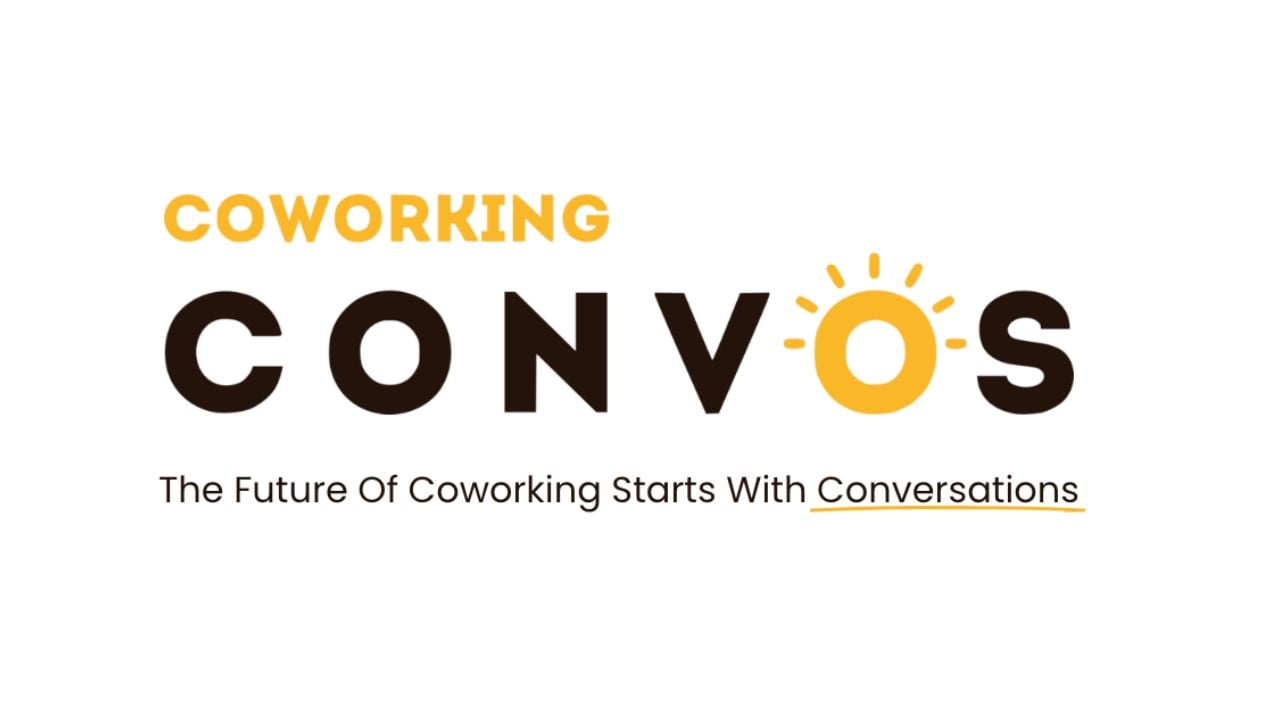- Presenteeism is an unhealthy workplace scourge that manipulates employees into working when they’re unwell.
- It’s on the rise. Levels of presenteeism tripled between 2010 to 2018, but only a handful of companies are trying to tackle it.
- Managing presenteeism can drive up profits, boost productivity levels and help retain employees.
Have you ever been unwell but gone into work anyway because you felt like you had to?
If no, good for you. If yes, then you’ve fallen victim to the unhealthy workplace scourge that is ‘presenteeism’. Compared with its close relative ‘absenteeism’, presenteeism has managed to avoid scrutiny and debate, enabling it to propagate and spread like wildfire.
What is Presenteeism?
Presenteeism refers to the practice of working when you’re ill, and it’s on the rise. In fact, levels of presenteeism tripled between 2010 to 2018, according to CIPD/Simplyhealth’s 2018 Health and Wellbeing at Work survey.
Of 1,000+ respondents, 86% claimed to have observed presenteeism at play in their organisation in 2018, compared with just 26 per cent in 2010. Despite this worrying trend, CIPD/Simply health found that only a handful of companies are trying to tackle it.
Just 25 per cent of respondents who experienced presenteeism said their organisation had attempted to discourage it – down from 48 per cent in 2016. So why is presenteeism so prevalent and what can we do to prevent it?
What Causes It?
CIPD explains that the rise in presenteeism is linked with increases in reported common mental health conditions such as depression and anxiety, as well as stress-related absence, which are among the top causes of long-term sickness absence.

Data shows that presenteeism is more detrimental than absenteeism.
Similarly, Vitality’s Britain’s Healthiest Workplace 2019 study reads:
“Employers bear the hidden cost of stress, anxiety and depression in the form of lost productivity due to absenteeism, or from presenteeism, when employees turn up for work, but get little done due to physical or mental health difficulties.”
Based on data from over 180,000 employees and 500 organisations across the UK, the health insurer’s annual study sheds light on workplace wellness trends.
In its 2019 iteration, the number of respondents “reporting moderate or severe symptoms of depression more than doubled, from less than 4 per cent in 2014 to 8.5 per cent this year.”
As such, “the levels of presenteeism – when employees turn up but feel unengaged and work below normal levels for physical or mental reasons – has jumped from 20.3 [in 2014] to 35 days,” the report says.
Other reasons for presenteeism might include one or a combination of the below:
- Fear of losing one’s job
- Fear of missing out on a promotion
- Lack of sick days available or no sick pay
- An insurmountable workload
- Feelings of guilt due to staffing shortage
- Overriding feeling of loyalty to the company
With the above in mind, presenteeism can also be seen as symptomatic of poor management. In toxic workplace cultures, employees are often made to feel guilty for taking time off. But ultimately it’s employers who pay the price for their mismanagement.
Its Impact on Business
Presenteeism costs businesses money; it’s a fact. Employees might think they’re doing a good deed by turning up and employers might think they’re saving money by manipulating people into coming in when they’re ill, but in reality nobody wins.
Two studies from the Journal of the American Medical Association, for example, found that the on-the-job productivity loss resulting from depression and pain was roughly three times greater than the absence-related productivity loss attributed to these conditions.
In other words, less time (and thus, money) was lost from people recovering at home than from them showing up but not performing to their full potential.

Working when unwell can result in longer-term health repercussions and the spread of illnesses (Image credit: Nik Shuliahin)
The true cost of presenteeism is hard to calculate. Companies with a negative workplace culture that do little to combat presenteeism will no doubt find it harder to attract and retain the best talent, and therefore the best and most loyal clients and customers.
How to Avoid It
Managing presenteeism can drive up profits, boost productivity levels and do wonders for your brand’s ability to attract and retain employees. Here are a few things to consider.
- Recognise the symptoms: The first step is to be aware of the signs of presenteeism. Some companies view people who come into work as “dedicated”; make it clear that you expect sick employees to stay at home until they feel well enough to return to work.
- Have reasonable HR policies: Punitive sick leave policies, such as lack of fully paid sick leave, can discourage employees from taking time off. The result? Absenteeism becomes presenteeism, which as the figures in this article show, is actually a lot worse.
- Promote flexible working: Giving employees the option to work flexibly is proven to reduce workplace stress and presenteeism. Allowing individuals to work from home occasionally and flex their start and finish times in line with life commitments are good practices.
- Introduce a wellness programme: Approach wellbeing strategically by identifying any physical, mental, social and financial pain points and providing solutions. A few popular things to consider are exercise classes (including yoga), access to counselling services and financial advice.
How is your organisation tackling the presenteeism epidemic? Join the debate on Twitter @allwork_space.

 Dr. Gleb Tsipursky – The Office Whisperer
Dr. Gleb Tsipursky – The Office Whisperer Cat Johnson – Coworking Marketing Maven
Cat Johnson – Coworking Marketing Maven Angela Howard – Culture Expert
Angela Howard – Culture Expert Drew Jones – Design & Innovation
Drew Jones – Design & Innovation Andrea Pirrotti-Dranchak – Competitive Advantage
Andrea Pirrotti-Dranchak – Competitive Advantage Jonathan Price – CRE & Flex Expert
Jonathan Price – CRE & Flex Expert Jeremy Fennema – Tech Innovation Alchemist
Jeremy Fennema – Tech Innovation Alchemist












